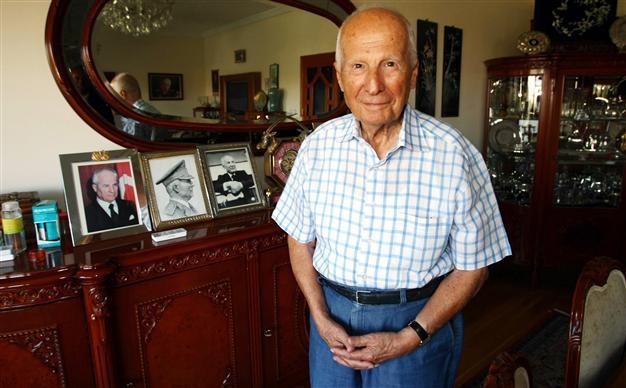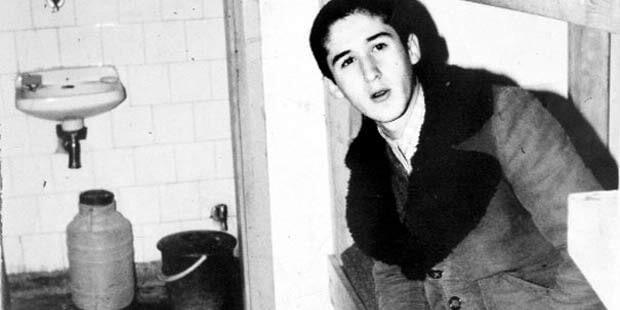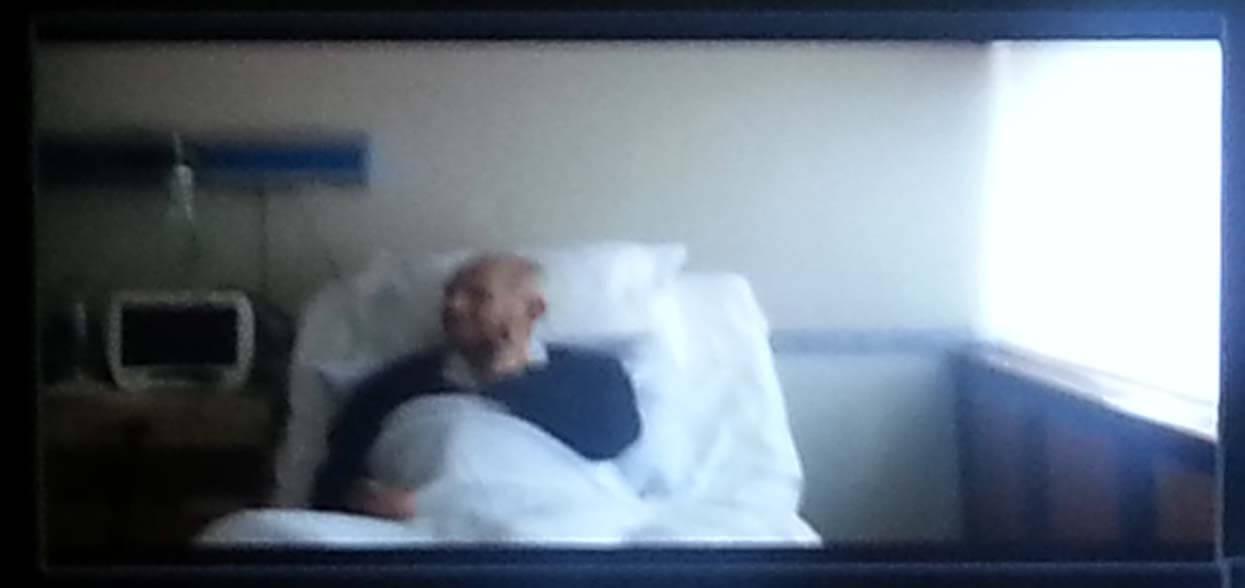Turkey debates state funeral for convicted coup leader Kenan Evren
ANKARA

A file picture taken on September 4, 2010 shows, Turkey's former Army Commander General Kenan Evren, one of the leaders of the 1980 Turkish coup, posing at his home in Ankara. AFP PHOTO /ADEM ALTAN
Turkey is debating whether or not to hold a state funeral for Kenan Evren, the country's former coup leader and seventh president who died late on May 9, aged 98.
Evren was the leader of the Sept. 12, 1980 military coup d’état, as the Chief of Staff at the time.
The 1980 military coup, Turkey’s third, prompted a wide-ranging crackdown that left deep marks on society. Fifty people were executed, an estimated half a million were detained, many were tortured, hundreds died in prison and many more disappeared during three years of military rule.
The coup leaders argued that they were forced to intervene to restore order after years of chaos, in which an estimated 5,000 people died in factional violence between leftist and rightist groups.
Evren’s daugters Miray and Şenay, as well as his son-in-law Maksut Göksu, reportedly demanded a state funeral. It is likely that the ceremony will take place at the General Staff rather than at Parliament, as many politicians would be likely to object to such a ceremony due the long-lasting effects of coup in Turkish politics and society. Evren’s family also reportedly approves of a ceremony at the General Staff.
Ankara was silent upon the death of Evren, with no official statement released as of May 10. The sole statement came from the cabinet, with Development Minister Cevdet Yılmaz recalling a Turkish saying that it is not appropriate to speak ill of someone after their death.
“We have a tradition. We do not speak ill after someone dies. We say, ‘may God bless his soul,’” said Yılmaz on May 10.
Former Justice Minister Bekir Bozdağ was similarly tight-lipped, simply stating that “there is nothing to say now.”
Coup's codename: Flag Operation PlanOn Dec. 21, 1979, then President Fahri Korutürk received a letter that was considered a memorandum from then Chief of General Staff Evren and other commanders-in-chief of the Turkish Armed Forces. Amid political gridlock in parliament and continued street violence between leftist and rightist group, a military coup started to be discussed behind closed doors in Ankara.
Evren and the commanders-in-chief prepared the “Flag Operation Plan” describing steps to be taken during the coup d’état, and the plan was sent to all military units on Sept. 5, 1980.
The plan was put into effect on the night of Sept. 12, with all top politicians in the country taken from their homes by soldiers. A curfew was declared and the activities of all political parties, unions, chambers, and civil society groups were banned.
Overall, a total of 650,000 people were detained, 230,000 people stood trial in 210,000 cases, and 517 people were given death sentences. Ultimately, a total of 50 people, including 18 members of leftist groups, eight members of rightist groups, 23 ordinary prisoners, and one ASALA militant, were executed. One of those executed was 17-year-old Erdal Eren (below), whose case became notorious after the court tampered with his age in order to carry out the sentence.
Evren remained unrepentant in the years after the coup, defending his junta’s executions with a statement: “What should we have do? Not execute them and feed them?” He also said his “hands didn’t tremble” as he signed the death sentences.
In addition, some 30,000 civil servants lost their jobs after the coup, 30,000 people were exiled abroad as “political refugees,” and 14,000 people had their citizenship revoked for political reasons.
Newspapers remained closed for 300 days after the coup and 303 lawsuits were filed against 13 high-circulation newspapers.
A constitution drafted by the military junta was approved with 92 percent support in a 1982 referendum, but Evren continued as president until 1989, after the junta handed executive power to a civilian government in 1983.
Evren and the only other surviving member of of then-National Security Council that led the junta, former Air Forces Commander Tahsin Şahinkaya, 90, were convicted to life in prison on June 18, 2014 as the two key defendants in the Sept. 12, 1980 military coup d’état case. Both generals were also demoted to the rank of private.
Şahinkaya is unable to leave his bed at hospital (below).
After their convictions, the Constitutional Court unanimously rejected individual applications filed by Evren and Şahinkaya, which were made on the grounds that they had suffered “rights violations” during their trial.
Evren had previously said he would never testify and claimed that he would commit suicide before he could be tried. “I promise in front of my nation that I will not let this matter be dealt with in the courts. I will commit suicide,” he said in 2009, when the idea of a coup trial was discussed. He later attended the trials via a video conference system.


